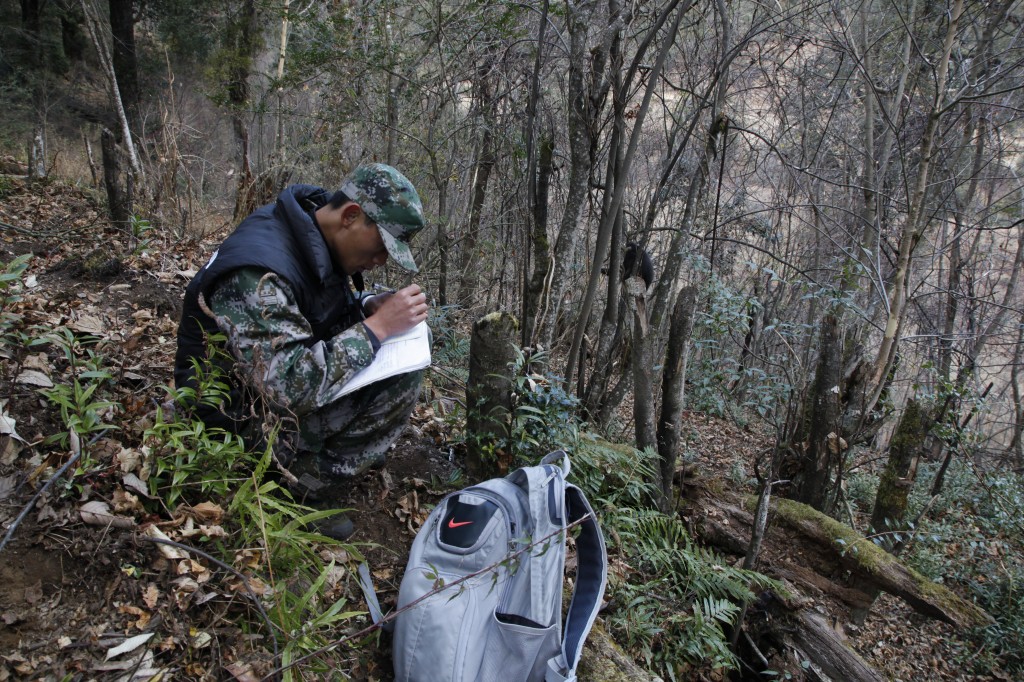
Conservation scientist Bai Fan saw a photograph of the monkey on his professor’s desk in university.
The Yunnan snub-nosed monkey was once an unknown animal inhabiting the remote forests of Deqin County in southwestern China. Today, it is a first priority protection species, as important and iconic as the panda. And filmmakers, eco-tourists, wealthy entrepreneurs and scientists travel thousands of kilometers just to see them, in one of the last pieces of biodiverse wilderness left in China.
How did this species become such celebrity? In 1995, an officer from the Forestry Department named Xinhong Xi learned that illegal logging would destroy the snub-nosed monkey’s limited habitat. Xi became the first photographer to capture these creatures on celluloid; the photographs and a letter that he wrote to the EPA were picked up by the Chinese media and circulated widely. The photographs provoked a national outcry against the destruction of the forest. In response, the Chinese Central Government banned illegal logging and expanded the protected area.
This was the first time in the history of the Chinese environmental movement that a grassroots campaign affected policy at the highest levels of Chinese government. The success galvanized the environmental movement in China, and planted the seeds of environmentalism in the next generation. Today, Xi’s disciples are in the same forests, following the same monkey whose photographs captured their imagination twenty years earlier.
With Xi’s support, these young wildlife filmmakers are shooting a documentary on the successful preservation of the Yunnan snub-nosed monkey. They will live on the Baima Snow Mountain Nature Reserve for an entire year, with little pay and few material comforts. Their lifestyle and career choice is an outlier for most Chinese of their generation and social class, who tend to prioritize wealth and “conspicuous consumption” instead. However, these young filmmakers have spent time abroad where they were introduced to new ideas of conservation: ideas they hope will take root in their own country, and in the next generation of youth.
And these ideas are taking root in China. The film is funded by a fashion retailer from Guangdong, whose donations will not bring him any tax benefits. Young Chinese scientists live at the nature reserve with the filmmakers and the visiting donor; they do not come from upper middle class families and cannot afford to study abroad. Yet they have dedicated their lives to research which will help to improve conservation policy. Eco-tourists from Shanghai as well as locals from Tibet are eager to see the monkeys in their pristine natural environment; hard to find in smoggy, overcrowded coastal cities.